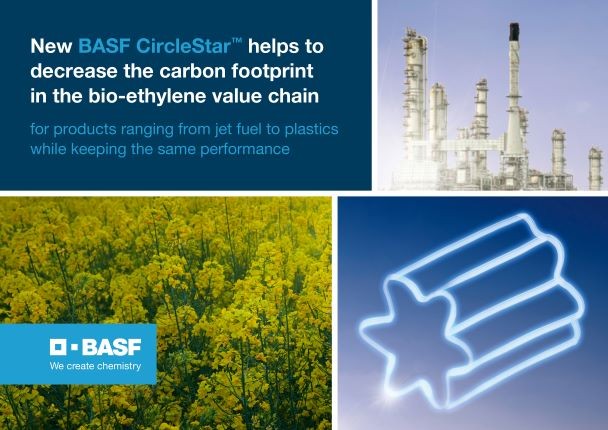BASF introduces CircleStar which decreases CO2 footprint in the bio-ethylene value chain for products ranging from jet fuel to plastics

The novel star-shaped catalyst achieves a 99.5% selectivity for the ethanol-to-ethylene (E2E) conversion. With an operating temperature that is more than 25°C lower compared to conventional processes, CircleStar helps to decrease the carbon footprint in the bio-ethylene value chain for products ranging from jet fuel to plastics by more than 10 percent while keeping the same performance.
The E2E process plays a fundamental role for the chemical industry to transform to climate neutrality and to achieve their net-zero targets. BASF has in-depth experience for more than 25 years in E2E with dedicated catalyst development and testing available.
The existing Ethylene is 99 percent fossil-based while the BASF E2E catalyst is offering the possibility to change the Ethylene and its downstream value chain to make it bio-based. In this process, CircleStar helps to further decrease the CO2 emissions in the bio-based route by enabling lower temperature operations, longer lifetime and lower pressure drop in the catalyst bed.
“Our novel CircleStar for the bio-ethanol to bio-ethylene conversion has excellent product properties and helps our customers to significantly increase their production efficiency while reducing carbon emissions and supporting their net zero targets,” said Detlef Ruff, Senior Vice President - Process Catalysts, BASF.
Subscribe to our newsletter & stay updated.